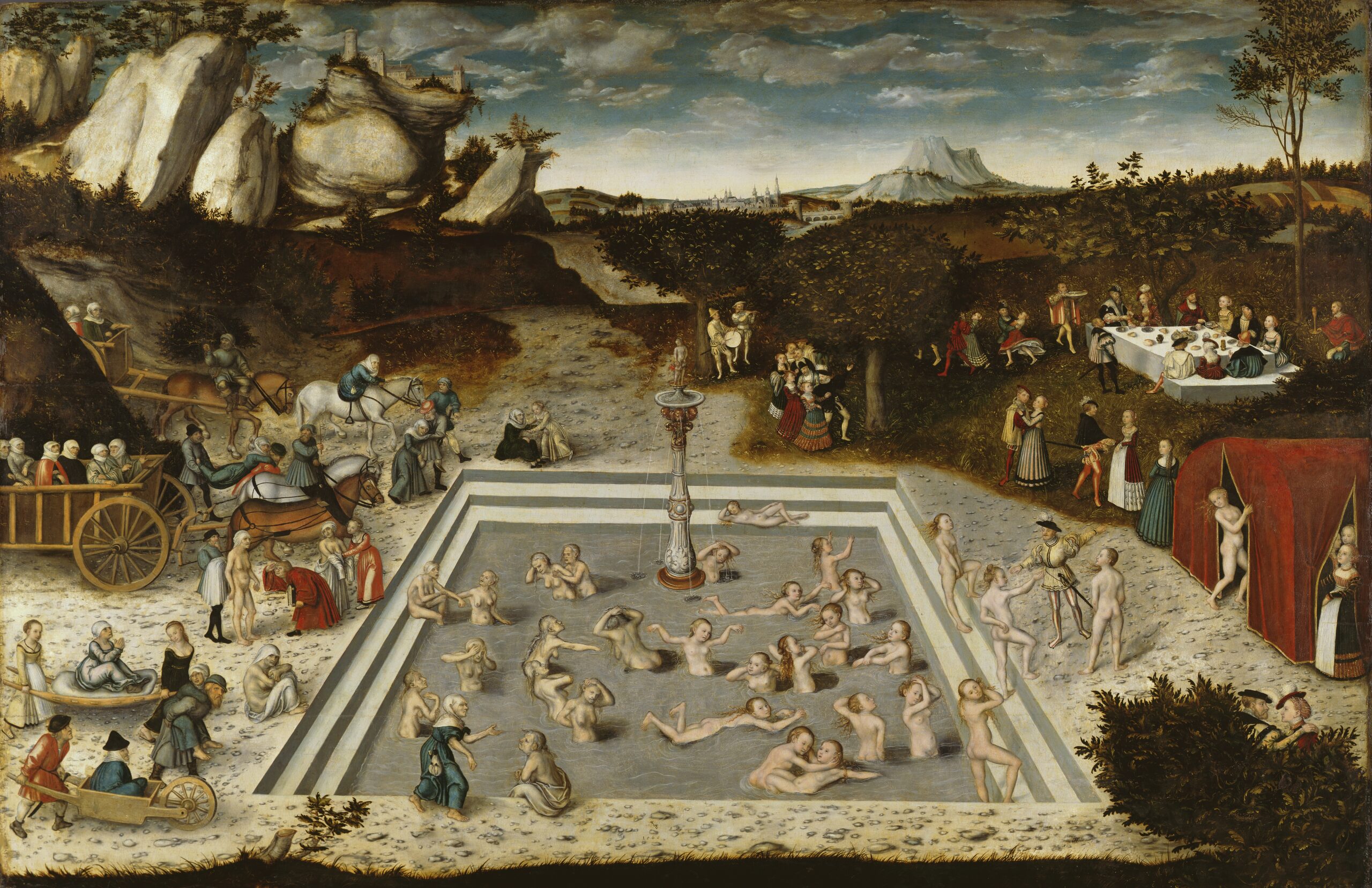JANUARY 29, 2025 – (Cont.) If Professor Stavrou is the consummate inquisitive scholar, he is, I think a born educator in the loftiest sense of the term. He’s neither a pedant nor a pontificator but a man intensely dedicated to intellectual integrity and the joy of learning. Given his unusually lengthy career as both a student of history and as an enthusiastic emissary of the subject, he has achieved a degree of insight and experience that few others in his field could match.
In his introductory lecture, Professor Stavrou dispensed one pearl after another. I was so intent on capturing each—and not dropping it—I felt like a Korean pearl diver laser focused on harvesting as many oysters as possible on a single deep breath of air, then surfacing just long enough to replenish my lungs with oxygen for another dive. For two hours, I leaned back in my chair but once—and then only briefly—just to ensure that by the end of the lecture I’d be able to move.
His description of the “three levels of learning” whisked me back to my undergraduate days, then drew me forward at a clip 10 times the speed of light.
The “first level,” he said, was to satisfy certain requirements—the basic one being a college degree. Class attendance and each assignment, quiz, exam is a step toward a diploma, which satisfies the job market’s general baseline requirement for individual advancement and economic sustenance and prosperity.
Back in the day, this first level of learning was the primary motivation for most of us undergraduates. “Want to gain acceptance by a top-flight graduate or professional school? Want to go straight into the job market? To optimize your choices, you’d better buckle down and rack up the best academic record you can.” Those were the constant and annoying reminders by our inner voices.
Many of us possessed a modicum of intellectual curiosity, of course, but this varied even within the individual. One’s level of curiosity was the equivalent of one’s state of hunger when arriving at a charity fund-raising event featuring the latest artworks acquired by a gallery. The caterer’s assistants, wearing tight beige gloves offer single “miniatures” from trays of pro forma hors d’oeuvres. If one is famished, one readily accepts a bite-size cracker bearing a small square of cheese; then a second (from a different catering assistant) in close succession, and if luck prevails, a third and fourth. Or . . . the attendee might not be so famished, or having just arrived from an early dinner, isn’t hungry at all, and so politely declines anything from the silver tray. In all cases, however, the main reason for attendance is not the food but to contribute to the fund-raising efforts of the charity.
As I pondered Stavrou’s “first level of learning,” I readily acknowledged to myself that the main reason I’d studied in college was to “get good grades” so I could enhance my life after college.
Stavrou’s “second level of learning” was to gain specific skill or knowledge for practical application. For me, law school was a second level of learning—at least in theory. Early in the experience, however, I decided I didn’t want to be a lawyer. This staggeringly ignorant conclusion was reached with zero understanding of what the practice of law (in its infinite contexts) might entail and how rewarding it could be on so many levels. Professor Stavrou’s comment about the “second level of learning” was a reminder of how I’d squandered the opportunity and how years later I wished that I’d gained some real-world experience between my “first level” of formal education and the “second level.”
“Now,” Professor continued, “if you’re lucky, you’ll reach the third level of learning, which is the very best form of it, and that’s learning for the simple joy of it.”
Bingo! I thought. That’s exactly where I’d landed—right then and there in that class; not because it was required for graduation or admission to a professional school and not because it was necessary for the acquisition of specialized knowledge. I was there purely and simply for the sheer joy of it.
Moreover, I realized, this professor, this guy Stavrou, was not at the early stage of his career or even the middle or later stage of it. He was far beyond the point of traditional retirement, but . . . I could readily see, he wasn’t in his intellectual twilight. He was still brilliant, and from the standpoints of wisdom and perspective, he was at the very zenith of his professional life, not 25 years past the pinnacle.
How lucky am I?! I wanted to shout. How very lucky, not only to have achieved that third level of learning but at the feet of someone who had reached a comparable level of teaching! I also wanted to laugh. Little would any of the young undergraduates understand how and why in that moment I felt as though I’d discovered the Fountain of Youth. If “youth is wasted on youth,” as it certainly was in my case, I had stumbled through life full circle back to . . . youthful exuberance, at least, but with greater focus and motivation than I’d had in my actual youth. This time around I was not about to squander . . . youth.
Professor Stavrou continued with his sweeping but equally penetrating introduction to the study of history generally and Russian history specifically. Matt, as the consummate student and scholar, had brought a notebook in which to record and preserve more reliably all the pearls that rolled off the learned professor’s tongue. Though I was equipped with a pen, I didn’t ask Matt for even a single sheet of paper. I wanted to savor the “third level of learning” without fetters of any kind.
Now for a few of those pearls . . . (Cont.)
Subscribe to this blog and receive notifications of new posts by email.
© 2025 by Eric Nilsson
